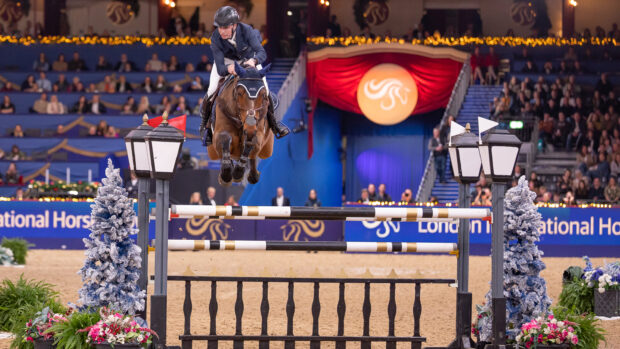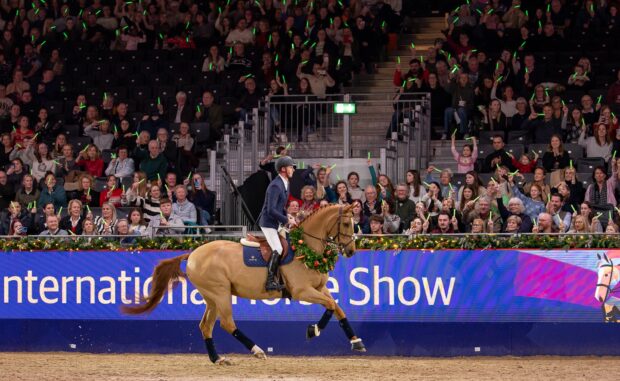A “LANDMARK” court case may have implications for all horse owners in relation to their liability if an animal causes an accident.
The High Court has ruled that owner Vicki Ball was an “innocent party” in relation to a collision between her horse Lowri, who had escaped on to the A3, and a taxi, in 2015. The passenger in the taxi suffered catastrophic injuries and made a claim, which was contested by Ms Ball’s insurers.
According to the court’s judgement, unless the escaped animal had been frightened or panicked into acting erratically, its owner may not be found strictly liable under the Animals Act 1971.
Law firm Clyde & Co, which acted for Ms Ball’s insurers, said the judgement made it clear that, under the Animals Act, claimants need to demonstrate that an animal was displaying an “abnormal characteristic” such as fright or panic to claim successfully under the Act.
Her Honour Judge Melissa Clark, who sympathised with the claimant, said: “My findings about Lowri’s behaviour on the night of the collision do not support the claimant’s pleaded case that Lowri acted unpredictably (and ‘reacted with force’) in circumstances where she was frightened/panicked…Accordingly I cannot find, as the claimant asks me to find, that the likelihood of the damage to the claimant, or of its being severe, was due to characteristics of Lowri which are not normally found in horses except at particular times or in particular circumstances.”
Clyde & Co partner Clare Garnett told H&H that although the firm is pleased with the case’s outcome, “we have enormous sympathy for the claimant”.
“We mustn’t lose sight of the fact that someone has been terribly injured,” she said.
She added: “This judgement is particularly encouraging for both animal owners and their insurers. What it means is the mere fact that your horse or animal escaped from a commercial facility, such as a stable in which you had confidence, does not automatically render you liable if it is then involved in an accident on the highway.
“If animals such as cows, dogs, foxes or deer are found on the road and cause an accident by mere result of them being there, claimants will no longer have a smooth route to recovery in law. What this judgement makes clear is that it is all about the circumstances leading to the accident, including the behaviours of the animals and any external stimulus acting upon them.”
The judge found it is likely the horses who had escaped left their field by walking over “inadequately installed” and collapsed fencing, rather than the fact they were frightened or chased. It was found they went some way along the B280, more likely in response to an “adverse stimulus” from which they recovered quickly, and that it is likely Lowri was “stationary and calm” at the time of the collision.
For strict liability to be found under the Animals Act, the animal must be shown to have a dangerous behavioural characteristic, which may only be seen at particular times or in particular circumstances, and it is that which must have caused the damage.
“The leading case is still Mirvahedy v Henley, in the Supreme Court, so this hasn’t got as much weight but it’s certainly positive, and moving in the right direction,” Ms Garnett told H&H.
In Mirvahedy v Henley, it was eventually ruled that the owner of some horses who escaped from a field and were involved in a collision in which a driver was badly injured was liable.
“I had a livery yard then and my insurance doubled overnight,” she said. “It had an impact on anyone who owned a horse but this case, I hope, will be persuasive.”
Ms Garnett added that the case shows the importance of having public liability insurance, with which Suzy Middleton, CEO of South Essex Insurance Brokers, agrees.
“It highlights how important it is to buy liability cover,” she told H&H. “People may see their horses in a field and think the only issues are vets’ bills or when they’re riding them. Until you see these claims, which can be quite significant, you may not see how important the insurance is. If the cover hadn’t been in place in this case, it would have dropped back on the owner, and the costs would have been significant.”
Mrs Middleton said the insurance industry is still absorbing the impact of this judgement, and she believes “it will be tested again, and the next case will probably be the telling one”.
“Each case is judged individually but this is a stepping stone, I think,” she said. “It’s questioning strict liability, which I think is good.
She added that horse owners should also check their livery yards have appropriate liability insurance, which is not a legal requirement but would also have covered costs in a case such as this.
“A judge in another case might say something different,” she says. “As this stands, it is a good result but people need to be mindful that there are different circumstances, and the best protection is buying liability insurance.”
You might also be interested in:

Owner’s public liability insurance warning after £14m injury claim *H&H Plus*

‘The car bonnet went under his belly’: Rider’s insurance warning after road collision
Five-year-old gelding Jack suffered serious lacerations in the collision, for which Pauline as his owner is liable

Subscribe to Horse & Hound magazine today – and enjoy unlimited website access all year round
Horse & Hound magazine, out every Thursday, is packed with all the latest news and reports, as well as interviews, specials, nostalgia, vet and training advice. Find how you can enjoy the magazine delivered to your door every week, plus options to upgrade your subscription to access our online service that brings you breaking news and reports as well as other benefits.




